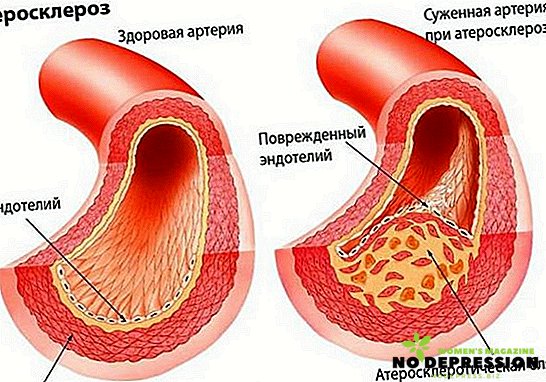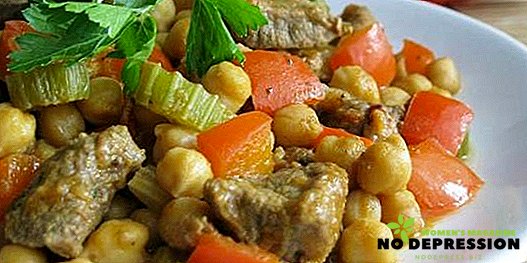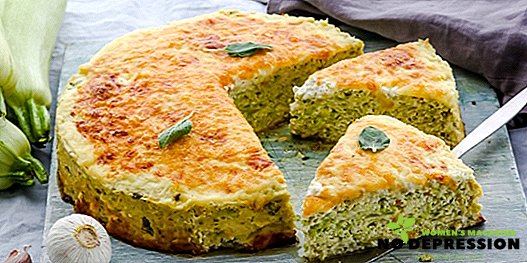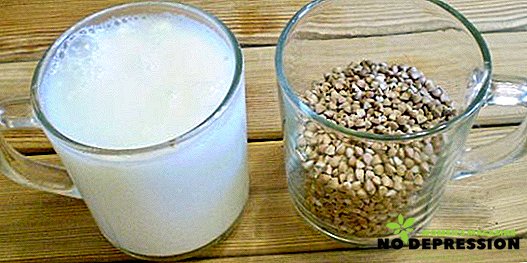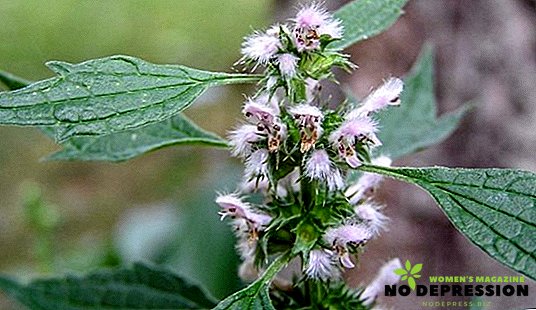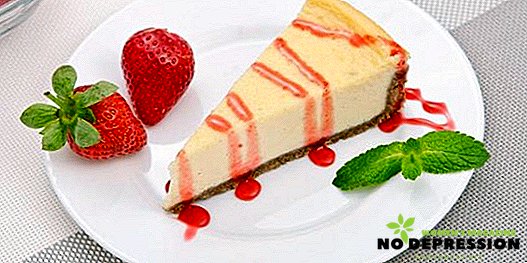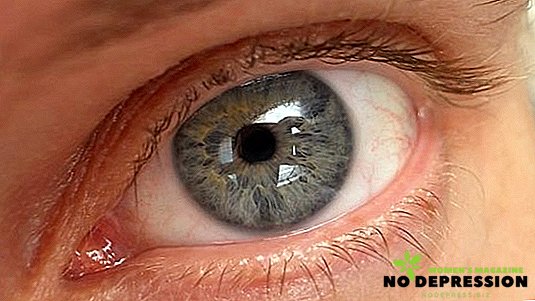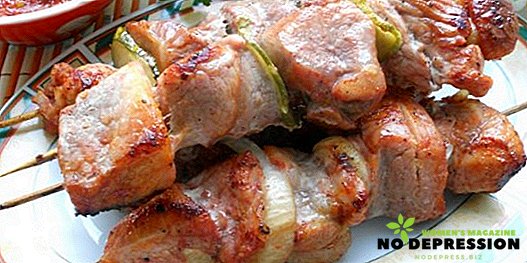Almost every person at least once in his life faced with such an acute and unpleasant disease as food poisoning. It is caused by the use of expired, insufficiently processed in the cooking process, poorly washed or low-quality food.
As a rule, nausea, constipation and acute pain in the stomach - the right companions of food poisoning.
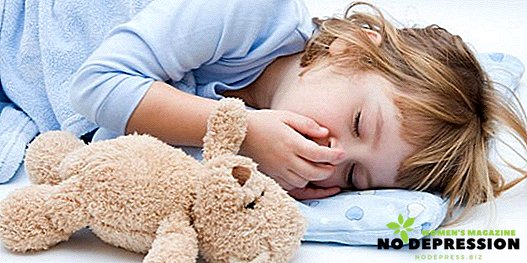
Varieties of food poisoning
- Infectious. The disease is caused by active reproduction of weakly pathogenic microorganisms (parasitic bacteria that live in the intestinal tract). A fever, nausea, and diarrhea are characteristic symptoms of infectious food poisoning. The correct medical name for the disorder is PTI (foodborne illness);
- Non-infectious (toxic). As a rule, poisoning is triggered by the ingestion of chemicals, poisons, inedible fungi and other substances that are considered toxic to the human body. In this case, you should immediately consult a doctor! Possible symptoms of intoxication: headache, hallucinations, convulsions.
Food poisoning: symptoms in adults, causes
You must learn to recognize the signs and symptoms of eating disorders in order to know what to do in case of poisoning. The first symptoms may appear within half an hour after ingestion of poor-quality food, and within a few days.
But it is worth remembering, a sudden loss of appetite, accompanied by an increase in body temperature - this is the first bell that is not all right with your digestive system.
Common signs of food poisoning are:
- increased body temperature;
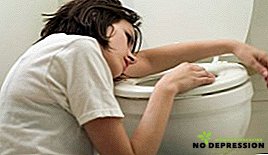
- chills;
- headache;
- causeless weakness;
- sudden loss of appetite;
- diarrhea, or a violation of the chair: a sharp, unpleasant smell, the remnants of food that could not digest;
- vomiting and subsequent urging, not giving any results;
- deterioration of health;
- blurred vision;
- pain in the intestine;
- bloating.
Symptoms can persist for several days, with proper treatment, the symptoms cease to be sharp and severe, gradually fading away.
Causes of food poisoning can be:
- eating foods that have lain in the sun for a long time;
- expired products;
- unwashed hands;
- inedible mushrooms;
- poorly roasted, raw or stunted meat;
- food cooked by a sick person may be contaminated, even though it looks normal;
- eating poorly or completely unwashed vegetables, fruits.
The most "attractive" products for the reproduction of microorganisms are:
- dishes with fish, especially raw (sushi, rolls);
- pickles, canned tomatoes and various vegetables;
- homemade jams;
- raw eggs;
- milk, cheese, cottage cheese are excellent breeding grounds for bacteria;
- products whose wrapper is damaged.
Food poisoning: first aid
Most often, the patient is almost immediately hospitalized for first aid. But what can you do?
The first thing to do when you detect one or more signs of food poisoning: wash the stomach. It is advisable to rinse until water begins to flow out instead of vomit. Ideal 2% soda solution, but ordinary water will do. (Not from the tap, but always boiled!)
 It is necessary to drink, drink and drink again! A healthy person needs to drink up to 2 liters of water per day. A person with food intoxication needs to drink even more, up to 3 liters per day. Water helps to reduce dehydration, besides it, it is allowed to drink rehydron or weak tea.
It is necessary to drink, drink and drink again! A healthy person needs to drink up to 2 liters of water per day. A person with food intoxication needs to drink even more, up to 3 liters per day. Water helps to reduce dehydration, besides it, it is allowed to drink rehydron or weak tea.
It is necessary to refuse heavy and hard-to-digest food. Consider that after poisoning dysbacteriosis can develop (a condition in which the number of beneficial bacteria becomes less and harmful, naturally, more).
In any case, a visit to the doctor is necessary, only he can prescribe the correct treatment and prevent the development of the most dangerous diseases, such as botulism (a deadly disease caused by exotoxin of botulism).
What to do next: medications and traditional methods of food poisoning treatment
If the condition is not critical, an appeal to the doctor is not required.
20-30 ml of castor oil will be suitable; castorca is a wonderful medicine for removing toxins from the body.
When diarrhea, activated carbon will be a good remedy (for an adult: 3-4 tablets). With strong and frequent diarrhea, Hilak Forte and Loperamide will do. It is strictly forbidden to take antibiotics and prescribe a treatment with sulfonamides (Sulgin, Sulfazin and others).
Traditional methods of treatment:
- You can drink 10 minutes before eating a little broth of dill with honey, it does not matter, fresh or dry dill, it can help in any way. Recipe: you need a small saucepan in which you need to put a teaspoon of dill, then pour boiling water on it and cook for 20 minutes over low heat. After it is necessary to allow the broth to cool and infuse, and then add a teaspoon of honey. Drinking in large quantities is not recommended, half or glass per day;
- It is not recommended for the patient to lie down, much less sleep. Thanks to the intensive movements, you can help your body along with then remove toxins;
- Preference in food should be given to different broths, heavy and difficult to digest food should be discarded;
- Recipe "Ginger tea": a tablespoon of ground ginger is poured over with boiling water and allowed to cool for half an hour. Then, with an interval of 20-30 minutes, drink a few sips;
- After poisoning, it is recommended to take activated charcoal 3 times with an interval of 20 minutes (1 tablet per 15 kg of weight).
In addition to the above tips, try to give up food for 24-36 hours after poisoning. Daily starvation will be able to get you back in shape much faster, return to the usual diet a day after poisoning, even with good health - you can not!
Food poisoning: symptoms and features of treatment in children
It happens that a poor-quality product was consumed by the whole family, but only the child was poisoned by food. This happens because of the immaturity of many body systems, which is why babies suffer diseases much harder than any adult. If food poisoning is detected, you should always consult a doctor, especially if the child is breastfed.
Symptoms:
- dry skin;
- painful pallor;
- vomiting;
- pointed features;
- drowsiness;
- convulsions;
- anuria;
- diarrhea.
Often the symptoms of poisoning pass on the third day, and the child feels sleepy and tired.
Treatment
The first thing you need to call an ambulance. Before her arrival, your task is to try to compensate for the lost fluid, the baby needs plenty of drink.
 For diarrhea, you can start taking medications such as Smecta, Polyphepan and Polysorb.
For diarrhea, you can start taking medications such as Smecta, Polyphepan and Polysorb.
If the child is not yet one year old or is breastfed, stop feeding and drink water that is necessarily boiled.
Once the condition begins to improve, you can go back to breastfeeding.
If the child is older, it is also necessary to limit nutrition.
The ideal diet will be: oatmeal or rice porridge on the water, weak sweet tea and homemade croutons.
Food poisoning: diet and nutritional guidelines
Foodborne infections cause unpleasant symptoms such as diarrhea and vomiting. Most often they are uncontrolled, so the task of the diet is to restore normal water-electrolyte balance and eliminate dehydration.
The basic principles of nutrition during intoxication of the digestive system:
- Drinking and drinking again is the main rule for food poisoning. This is necessary to prevent dehydration and elimination of toxins from the body. But it is necessary to drink in small quantities, because a glass of water, drunk in one gulp, can provoke vomiting;
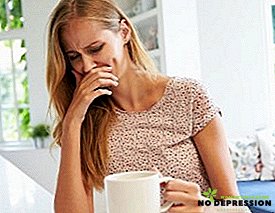
- Meals should be balanced. Between meals there should be a certain period of time. It is necessary to eat often and in small portions; fractional meals are ideal: 5-6 receptions per day. Small portions give the body a break so that he can not only digest food, but also heal the stomach lining, which after poisoning is terribly irritated;
- There should be no fried and overly salty dishes. Everything must be boiled or steamed;
- There is a separate conversation about salt. Its use is completely limited, or minimized: 5-6 grams per day, no more. Too salty food will significantly hinder the rapid recovery of the mucous;
- Too cold or hot food can cause vomiting, so the dish must be served in a warm, slightly cooled form.
The diet can last for about a week, and the return to a normal diet occurs gradually.
Permitted products for food poisoning:
- compotes, jellies, fruit drinks, boiled from jam or berries;
- meat, fish broths;
- tender meat, such as chicken breast, rabbit meat;
- cutlets, but the stuffing should be scrolled twice, and even three times;
- porridge from buckwheat, oatmeal, rice;
- milk or low fat cottage cheese;
- it is allowed to drink the juice, but it must be diluted with water, in a ratio of 1 to 1;
- croutons (made from bread);
- crackers, preferably without raisins;
- you need to remember about vitamins, so askorbinki also allowed in small quantities.
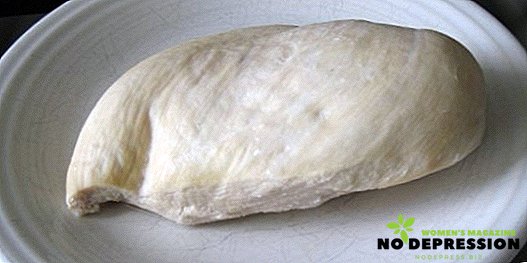
Prohibited foods in food poisoning:
- buns, biscuits, bread;
- Foods and snacks in public catering are strictly prohibited;
- flavored tea, cocoa or coffee;
- mayonnaise, mustard, ketchup;
- vegetables and fruits are also not desirable in use;
- fatty, hardly digestible meat;
- dried, smoked fish;
- cheese, milk, sour cream;
- sunflower seeds, chips, crackers;
- ice cream;
- sausage and ham.
Diet with food poisoning - the main method of treatment. Observing the correct diet, with all the bans, you can avoid such effects as dysbacteriosis of the alimentary tract and food allergies.
When is hospitalization required?
In case of severe poisoning, you should consult a doctor if:
- symptoms do not go away for about a week;
- pain intensified;
- there are painful cramps, cramps in the stomach.
It is urgently necessary to contact the hospital if you suspect such terrible diseases as botulism, staphylococcus or salmonellosis. The main symptoms of the disease are: dizziness, constant pulling pain in the stomach, dry mouth and lips, blurred vision, loss of coordination, loss of balance, eyelids constantly lowered, and the pupils practically do not respond to light.
The treatment of such diseases is carried out only in the infectious diseases hospital, where the toxin neutralizing serum will be introduced first.
Prevention of food poisoning
By far, the best treatment is prevention. And the best prevention is to observe the standards of hygiene when cooking, storing and eating food.
20 tips for avoiding food poisoning:
- Try when buying to pay attention to the color and smell of the product;
- Products with unknown / unspecified expiration date should be discarded;
- Try to comply with the storage conditions of certain products;
- Sponges, rags, kitchen towels - need to be changed more often than once a year. They are the most dangerous source of germs;
- Raw meat or fish should not be stored in the same compartment with the already prepared food;
- The kitchen, where it is necessary to prepare food, should be regularly cleaned with disinfectants;
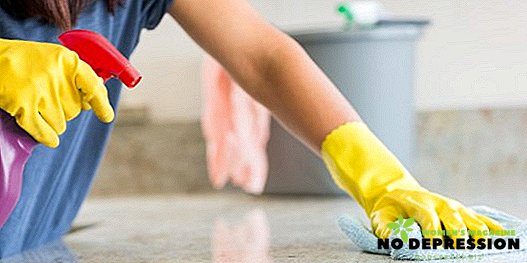
- Carefully choose a place for snacking, and be careful when eating in the canteens;
- Perishable foods should be eaten first and not refrigerated;
- Remember the golden rule that cooked soup or another dish in the refrigerator should not be stored for longer than 3-4 days;
- Moldy, soured and spoiled food without a twinge of conscience can be sent to the urn;
- Do not allow cockroaches, flies or rats to appear in your home. If this was not avoided, of course, it is necessary to immediately get rid of unwanted tenants, but for starters it is worth at least covering the food;
- After cutting raw meat or fish, rinse the cutting board thoroughly;
- Before cooking and before eating food, observe standards such as washing hands and stabbing hair;
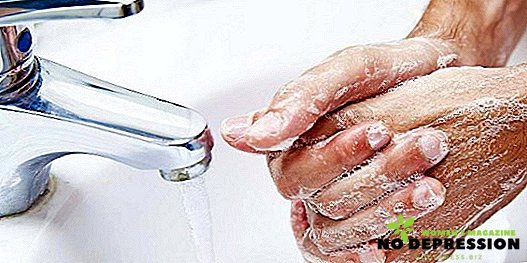
- You can drink only boiled or filtered water;
- Do not put meat with fish in one plate;
- Frozen meat or fish do not need to be thawed in water;
- The heated dish must be consumed within the next two hours, after the expiration it is necessary to re-heat the food;
- Vegetables, fruits and other herbal products should be thoroughly washed before consumption;
- Remember that the egg must be boiled for 10 minutes;
- Do not neglect the cleanliness of the bin. Frequently free it from garbage and wash.
It is worth remembering that no one is protected from eating disorders. If you see an attractive price on products, be sure to check their expiration date. It expires in a day or two, but is it so attractive? Think better, because it is not without reason that they are cheaper than good, fresh and high-quality food. Remember, do not save on your health!
Also, do not need to purchase goods whose packaging is damaged. And, of course, an unpleasant smell from food is a sign that it should be immediately thrown away.
And a lot of useful information about food poisoning is in the next video.








